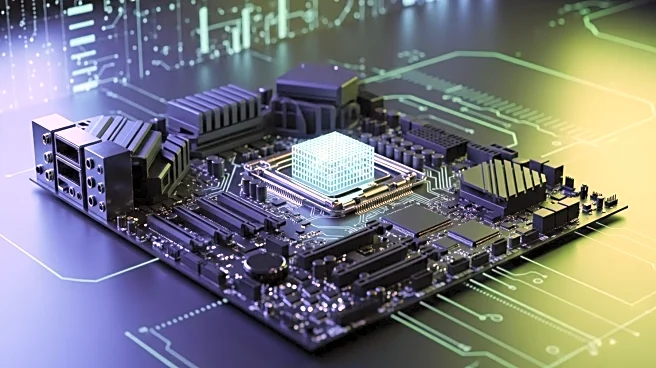What is the story about?
What's Happening?
Nvidia has expressed concerns regarding President Trump's proposed 15% tariff on U.S. chip sales to China. The company's CEO, Jensen Huang, confirmed ongoing discussions with the Trump administration about the potential impact on Nvidia's ability to sell its Blackwell AI chip in China. Despite Nvidia's strong Q2 FY26 earnings, the company's stock fell due to a cautious revenue forecast, indicating potential slowing growth after a significant AI boom. Nvidia has flagged potential legal risks and sales impacts, stating that the tariff could lead to higher costs and reduced competitiveness, while giving an advantage to competitors not subject to the same rules.
Why It's Important?
The proposed tariff could significantly impact Nvidia's business operations and the broader U.S. tech industry. If enacted, the tariff may increase operational costs and reduce Nvidia's competitiveness in the global market, particularly against rivals not facing similar restrictions. This could affect the company's revenue and market position, influencing investor confidence and stock performance. Additionally, the tariff could alter the dynamics of U.S.-China trade relations, affecting other tech companies and industries reliant on cross-border sales and collaboration.
What's Next?
Nvidia is awaiting a formal plan from the U.S. government regarding the enforcement of the proposed tariff. The company has not included the tariff in its revenue forecasts, indicating uncertainty about its implementation. CEO Jensen Huang remains optimistic about ongoing discussions with the Trump administration, although no timeline for a resolution has been set. The outcome of these negotiations could have significant implications for Nvidia's future sales strategy and its ability to maintain a competitive edge in the AI chip market.















